If I had a rand for every time a South African had described English beer as “flat and warm”, I’d probably have enough to buy a pint of English beer in the UK. And with the current exchange rate (and considering the prices in your average British pub), that is a LOT of rand. The beer they’re talking about is cask ale, and it is magnificent. Also, it is served neither flat or warm. Let me elaborate.
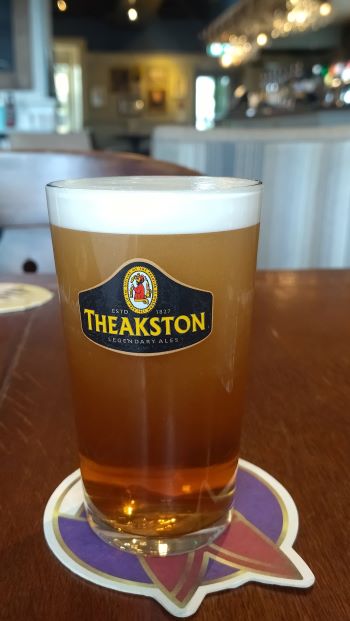
Makes you want to reach into the screen and drink it, right?
What is cask ale?
Cask-conditioned ale, also known as ‘real ale’ is unfiltered beer that is naturally carbonated in a stainless steel cask (as opposed to virtually all draught beer available in South Africa, which is force-carbonated in kegs, using CO2).
Brewers either transfer the beer to a cask before fermentation has finished, or allow to fully ferment then add sugar once the beer is racked to the cask. A carefully measured amount of yeast is added, which eats the sugar and gently creates natural carbon dioxide in the beer – just like with Champagne or MCC.
The result is a velvety mouthfeel and a lower carbonation level than your average keg beer. Cask ale is traditionally served not warm, but at cellar temperature – between 10 and 14 degrees C. If you consider this to be ‘warm’, remind me never to come over to your house for a cup of tea.
I’ve often heard craft brewers here say that their products, when unfiltered and unpasteurised, should be treated like milk. I generally disagree with this – I mean yes, beer should be kept cold to preserve its lifespan, but I would still drink a bottle of beer that had been stored in a cupboard for a few days before being refrigerated – I cannot say the same for milk.
A delicate pint
Cask ale though, is a delicate beast indeed. As the beer is pumped out of the cask, air is allowed in, causing gradual oxidation in the beer. This causes the flavour to change as the cask is emptied. Some real ale fans prefer the beer on day one when it’s completely fresh, others prefer the complexities that can arise on day two or three. But nobody likes drinking cask ale that’s been lingering around for a week, just as no-one wants to drink a bottle of milk that’s been knocking around in the back of the fridge for a week. After a few days, the beer will go flat and begin to spoil. It’s sadly not uncommon to get a sour pint of cask ale even in its homeland of the UK.
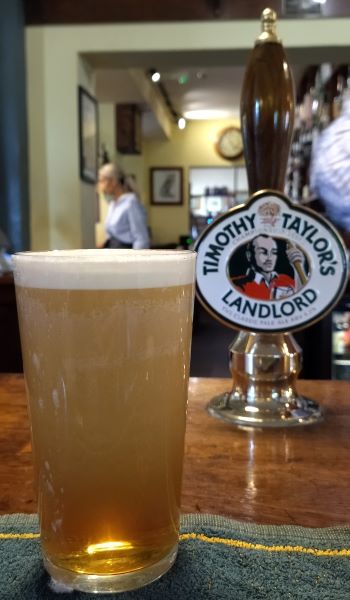
Timothy Taylor’s Landlord – an award-winning ale that’s best when served from cask
But man, when it’s on point it is truly magnificent. That gentle carbonation and smooth texture, combined with the not-so-cold-it-hurts-your-teeth temperature and indeed the low ABVs that generally come with British cask beers, all combine to make this a beer you could drink for hours and hours – as many British pub-goers do.
I recently went back to the UK for a week, much of which was spent in pubs. I set myself two rules – I could only order cask ale (no keg stuff) unless none was available, and I was not allowed to order the same beer twice. I did well on the first part – only one pub of the two dozen or so I visited had an offering that lacked real ale. On the latter I failed, not due to lack of choice, but because when you find Timothy Taylor’s Landlord on cask, you generally want to order it more than once. More on that in a future post.
With one sour exception I enjoyed every sip of cask I had in the UK – and I had a lot of sips. Like I said, this stuff is absurdly sessionable, never leaving you feeling full or bloated as some beers can. When I got back to SA, I found myself voicing the exact opposite complaints of those generally uttered by the uninitiated when it comes to cask ale. “How are the beers?” my husband asked via WhatsApp as I imbibed in a Cape Town microbrewery. “They’re all cold and fizzy,” I replied, with that half sad-face emoji.
Cask beer in South Africa
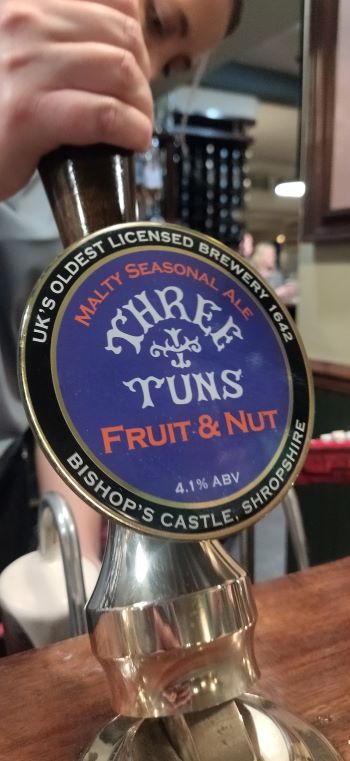
The beer engine in full flow
Cask ale would be a tough sell in SA. The deep-seated misbelief that British people drink ‘flat, warm’ beer even makes it difficult for craft brewers to sell English styles in the bottle, when the carbonation would be at a familiarly high level and the beer could be served as cold as the buyer’s fridge allowed. To my knowledge only three breweries offer cask ales with any sort of regularity – Shackleton, Aegir Project and to a lesser extent (although they were one of the first to bring casks into SA), Afro Caribbean.
Luckily, if you’re reading this in a timely manner (and you live in or near Cape Town, or are prepared to travel for beer), then you’ll have the chance to sample cask ales from all three, as well as Soul Barrel, Starke, Kennel and the Southyeasters Homebrewers Club, at a mini cask beer fest happening at Banana Jam Cafe this Saturday, 20 July. I for one am excited.
Each of the brewers will have a cask beer on tap at Winter Cask Ale Fest. The festivities kick off at noon with a cask tapping demonstration (bring something waterproof, just in case…). Entry is free, although if you book in advance via Afro Caribbean’s website, you can get a limited edition glass and a 330ml pour of each of the seven cask ales for R299.
The brewers will be on hand to talk you through their beers, and there will be pie pairings on the specials board. The lower carbonation level of cask generally leaves you with a bit more space for food, so come hungry. I’m hoping for pie and chips or perhaps that pub classic, a Scotch egg. (But definitely not that culinary abomination, the pickled egg.)
See you there on Saturday, for some beer that is neither flat nor warm.


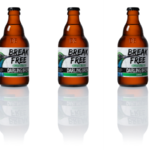


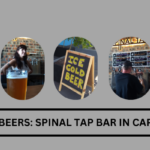
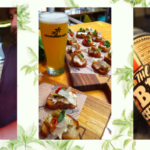
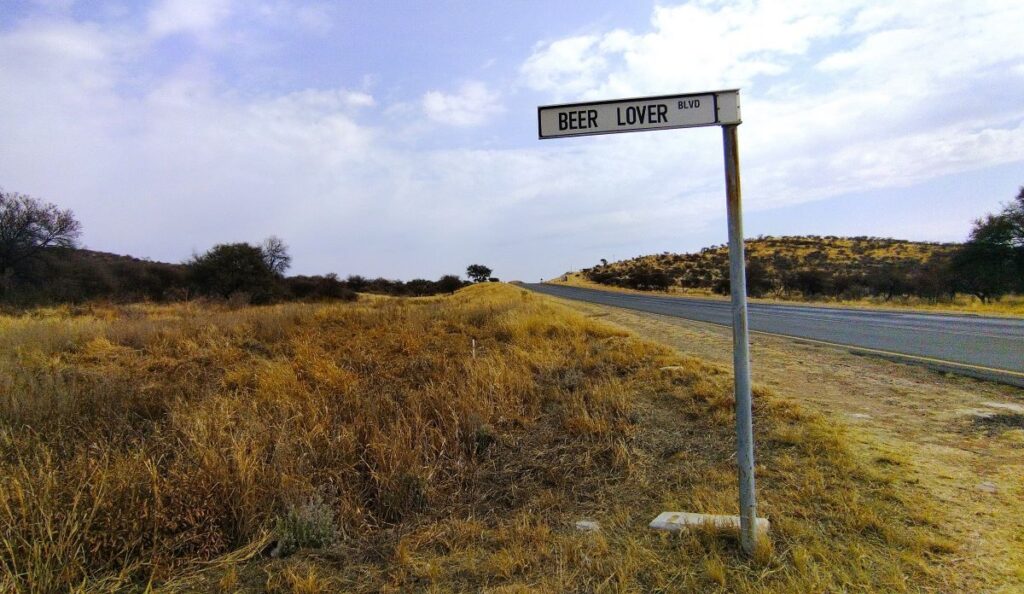

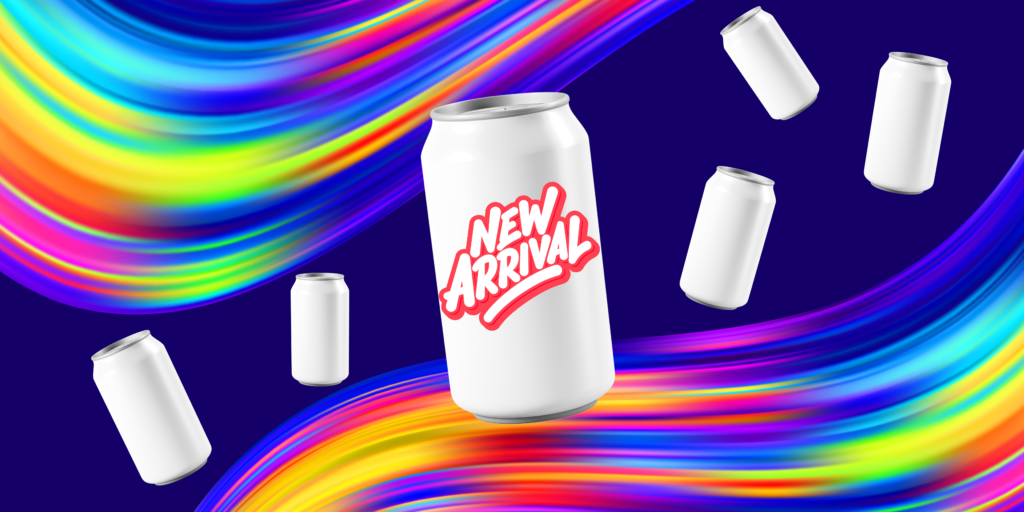
Sounds like its going to be a blast
Sorry not being there
We miss you! When are you coming to visit?
I agree 100% with you. Since moving to the UK and brewing cask beer, I’ve been converted. It’s misunderstood in the rest of the world. I still remember when Greg managed to get a cask at Afro Caribbean a few years ago and we tapped it at a SY meeting I think. I’m privileged to make and drink it now.